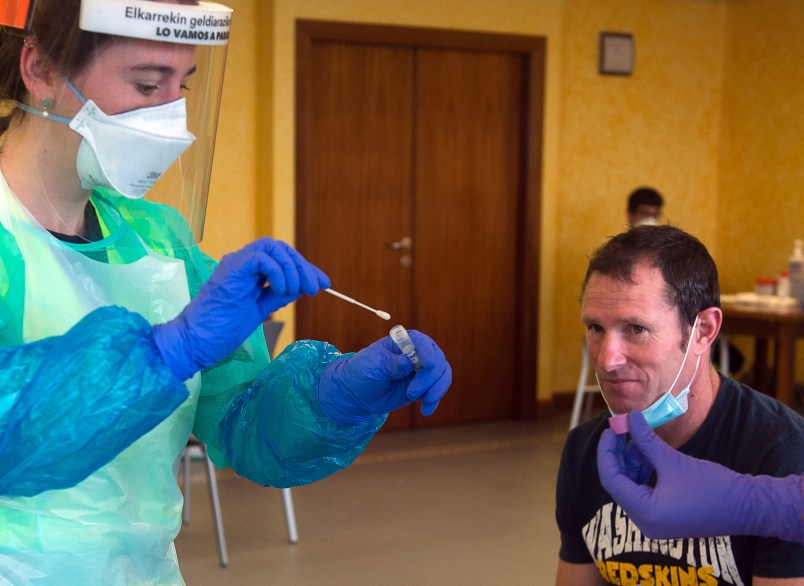The World Health Organization on Friday warned against assumptions that people who’ve recovered from COVID-19 will necessarily avoid being infected again.
In a scientific brief, the health organization acknowledged that some governments have suggested conferring “immunity passports” or “risk-free certificates” to former COVID-19 patients who are proven to have antibodies for the novel coronavirus in their blood.
However, WHO noted, “There is currently no evidence that people who have recovered from COVID-19 and have antibodies are protected from a second infection.”
“As of 24 April 2020, no study has evaluated whether the presence of antibodies to SARS-CoV-2 confers immunity to subsequent infection by this virus in humans,” the brief added.
In addition, per WHO, laboratory tests to detect COVID-19 antibodies “need further validation to determine their accuracy and reliability.”
Antibody tests to determine the presence of past coronavirus infections have become more widespread in recent weeks.
New York Gov. Andrew Cuomo (D) on Thursday the preliminary results of an antibody survey that found that 21.2% of New York City residents, and 13.9% of New Yorkers statewide, had tested positive for COVID-19 antibodies. The survey counted 3,000 people tested outside grocery stores and other big box stores around the state.
“At this point in the pandemic, there is not enough evidence about the effectiveness of antibody-mediated immunity to guarantee the accuracy of an ‘immunity passport’ or ‘risk-free certificate,'” WHO’s brief concluded.
“People who assume that they are immune to a second infection because they have received a positive test result may ignore public health advice. The use of such certificates may therefore increase the risks of continued transmission. As new evidence becomes available, WHO will update this scientific brief.”



